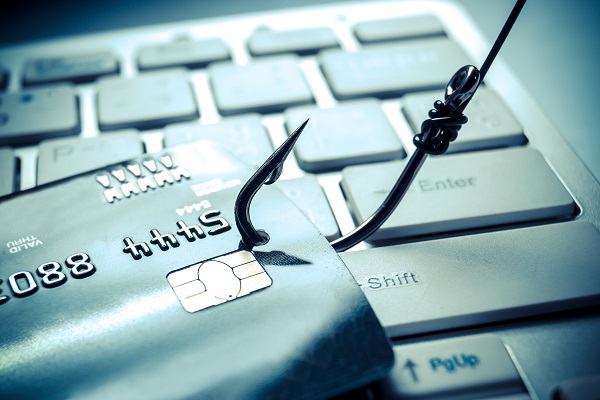 The U.S. Court of Appeals for the Third Circuit recently reversed the dismissal of a consumer’s complaint for unauthorized use of his credit card, holding that he stated claims for relief under the federal Fair Credit Billing Act’s correction of billing errors provisions, and the federal Truth in Lending Act’s unauthorized-use provisions.
The U.S. Court of Appeals for the Third Circuit recently reversed the dismissal of a consumer’s complaint for unauthorized use of his credit card, holding that he stated claims for relief under the federal Fair Credit Billing Act’s correction of billing errors provisions, and the federal Truth in Lending Act’s unauthorized-use provisions.
In so ruling, the Court held that:
- When “a creditor removes a disputed charge from a billing statement and later reinstates that charge, the 60-day period in which a consumer must file a written dispute begins when the consumer receives the first statement reinstating the charge.”
- “A cardholder incurs ‘liability’ for an allegedly unauthorized charge when an issuer, having reason to know the charge may be unauthorized, bills or rebills the cardholder for that charge. When an issuer does so, it must comply with the requirements of § 1643, and when a cardholder alleges those requirements were violated, those allegations may state a claim under § 1640.”
A copy of the opinion in Krieger v. Bank of America, N.A. is available at: Link to Opinion.
A consumer’s home computer was hacked remotely and his credit card information stolen. He called the card issuer, who told him there was nothing they could do until the charge appeared on the next billing cycle. He called again when he noticed the unauthorized charge on his next statement and was told his account would be credited pending an investigation.
On his next statement, the consumer noticed a credit had been posted for the unauthorized amount, and he considered the matter settled. However, shortly thereafter he received a letter from the card issuer stating that their investigation revealed the charge in question had been authorized, despite the fact that the charge was made by a person identified by name in Mumbai, India.
The subject charge re-appeared on his next statement, and the consumer promptly sent a letter to the card issuer describing the sequence of events and again requesting removal of the unauthorized charge.
The card issuer sent the consumer a letter denying his request because the home address, phone, and email address matched those provided by the vendor whose services were paid for with the card.
The consumer filed suit in state court and the card issuer removed the case to federal court. The amended complaint alleged that the card issuer (1) violated the FCBA by failing to conduct a reasonable investigation after receiving written notice of the billing error and credit the account for the unauthorized charge; and (2) violated TILA’s unauthorized-use provision by deciding that the consumer was liable for the unauthorized charge, which exceeded $50.
The trial court dismissed the amended complaint with prejudice, reasoning that the FCBA claim failed because the billing statement that triggered the statutory 60-day period to dispute the debt was the first letter the consumer sent, and that letter was sent more than 60 days after the first statement where the charge appeared. The trial court rejected as fanciful the consumer’s argument that the 60-day period should have been calculated from the second statement in which the issuer reinstated the disputed charge.
The trial court construed the consumer’s unauthorized-use TILA claim as “seeking ‘reimbursement’ only” and, based on Third Circuit case law holding that section 1643 of TILA “does not provide a cardholder with a right to reimbursement nor a private cause of action[,]” held that the TILA claim also failed.
On appeal, the consumer argued that the 60-day period should have been calculated from the second statement in which the issuer reinstated the disputed charge.
The Third Circuit first addressed the consumer’s FCBA claim, explaining that “[t]o trigger a creditor’s obligation either to credit a disputed charge or to conduct a reasonable investigation into the matter, a consumer must submit a written notice of billing error within 60 days after receiving the statement that contains the error. 15 U.S.C. § 1666(a).”
The Court agreed with the consumer, holding that “where, as here, a creditor removes a disputed charge from a billing statement and later reinstates that charge, the 60-day period in which a consumer must file a written dispute begins when the consumer receives the first statement reinstating the charge.”
The Third Circuit reasoned that the text of the FCBA supported its conclusion because only after the card issuer reinstated the charge was the consumer’s obligation to notify triggered. In addition, the Consumer Financial Protection Bureau’s guidance provides that “even where there is an existing error that the consumer would have reason to dispute so that the 60-day period has started to run, the clock is reset once the charge actually appears on a statement.”
The Court noted it would not make sense if the 60-day period re-started under such circumstances, but “not where, as here, as creditor has affirmatively removed a disputed charge (so that the consumer no longer has any reason to file a dispute) and only reinstates it on a later statement.” The Court continued that, “[a]fter all, if a subsequent statement restarts the clock even where a creditor fails to communicate the charge by mistake, surely the same result obtains where a creditor fails to communicate the charge by design.”
Finally the Court reasoned that because TILA was enacted “to require full disclosure of credit charges … so that a reasonable consumer can decide for himself whether the charge is reasonable … and, together with the FCBA, to ‘protect the consumer against … unfair credit billing and credit card practices, …” it would view the facts from the consumer’s “perspective and ask what a ‘reasonable consumer … would … be entitled to assume.”
Using this standard, the Court reasoned that a reasonable consumer would have considered the matter resolved when the charge was removed from the next statement he received after he complained.
In the case at bar, the consumer sent his letter disputing the charge only 11 days after it reappeared on his statement. Therefore, the Court concluded that “his notice was timely.”
The Court rejected the trial court’s interpretation of Regulation Z as requiring the court “to look only to the ‘first periodic statement that reflects the alleged billing error.’” “While the language of [Regulation Z] may be plain as applied to a billing error reflected on regularly recurring statements, it has little bearing on the circumstances of this case.”
Applying Regulation Z “where an issuer makes an alleged billing error on one statement, then eliminates that error on subsequent statements by crediting and not rebilling the charge, and then introduces the error into a new series of statements at a later date—would be in tension with [Regulation Z’s] text and contrary to both common sense and broader policy concerns.”
The Third Circuit then turned to the consumer’s unauthorized-use claim under TILA section 1643, “which provides that a credit card issuer may not hold a cardholder liable for the unauthorized use of a credit card without complying with specific requirements—among them that in no circumstances may liability exceed $50.”
The Court characterized the trial court’s reasoning in support of dismissal as “misconstru[ing] the nature of [the consumer’s] claims and misread[ing] our case law interpreting § 1643.” This is because section 1640 provides a private right of action against “any creditor who fails to comply with any requirement imposed under [15 U.S.C. §§ 1631-1651], which includes requirements of section 1643.
Because the consumer alleged that the card issuer violated section 1643 and caused him actual damages by failing to conduct a reasonable investigation and imposing liability in excess of $50, the consumer “did state an unauthorized use claim, and in dismissing that claim on the ground that § 1643 itself does not provide consumers with a private right of action, the District Court failed to recognize that § 1640 does.”
The Third Circuit also held that the trial court erred by rejecting the consumer’s claim under § 1643 “as an attempt to seek ‘reimbursement’ … [because] § 1643 ‘does not provide a cardholder with a right to reimbursement,’ but only ‘limit[s] a card issuer’s potential recovery for fraudulent purchases.’”
The Court noted that the two Third Circuit cases relied upon by the card issuer and trial court were inapposite because neither one “addressed an issuer’s violation of § 1643 by imposing over $50 in liability on a cardholder even after it was notified that the charges had been unauthorized. Nor did they mention, much less address, a cardholder’s right under § 1640 to recover ‘actual damages.’” Finally, the Court noted, the consumer was seeking actual damages under § 1643 in addition to reimbursement of the subject unauthorized charge.
The Court rejected the issuer’s final argument that section 1643 only applies if the card issuer sues rather than just demanding payment billing statements, reasoning that since “a cardholder is … legally obligated to pay the charges that appear on his bill, … the notion that he does not unless and until the issuer brings an action against him in court no doubt would come as a surprise to Congress, which enacted § 1643 in part to address the ‘problem of liability’ where an issuer does not sue over a disputed charge but only ‘insisted on being paid.’”
In addition, the notice and reasonable investigation requirements imposed by TILA “would make no sense if ‘liability were viewed as not being ‘impose[d]’ until the issuer obtained a judgment in court.” This “would thwart TILA’s purpose of giving consumers ‘meaningful guidance’ early in the process, … and ‘enabling [them] to shop around for the best cards.’”
Finally, such a result “would contravene the purpose of § 1643: consumer protection. This goal is decidedly not served by forcing every cardholder bill for an unauthorized charge to pick between twin evils: (1) refusing to pay, and risking late fees, interest, and rate increases, … or (2) paying, and forfeiting his right to limited liability altogether.”
The Court concluded “that a cardholder incurs ‘liability’ for an allegedly unauthorized charge when an issuer, having reason to know the charge may be unauthorized, bills or rebills the cardholder for that charge. When an issuer does so, it must comply with the requirements of § 1643, and when a cardholder alleges those requirements were violated, those allegations may state a claim under § 1640.”
The trial court’s order of dismissal was reversed that the case remanded for further proceedings.


